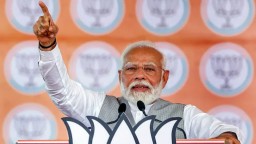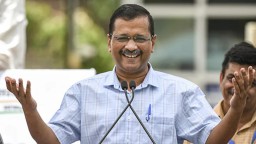Latest News
INTERPOL
.jpg)
The four-day grand event (18-21 October) of 90th meeting of the INTERPOL General Assembly was successfully held at Pragati Maidan, New Delhi. On the occasion of Amrit Mahotsav of India’s Independence, Interpol had accepted the special request of the GOI to organize meeting in India. Earlier in 1997 India also got the opportunity to host. Delegates from 164 out of 195 member countries, Interpol’s President Ahmed Naser Al-Raisi and SecretaryGeneral Jürgen Stock participated in this annual meeting. In the 90th session of the INTERPOLGA total 14 different resolutions were passed, including strengthening cooperative response to combat financial crime & corruption, prevention of online child sexual exploitation and abuse; implementation of concrete strategies to identify offenders and resolutions also were passed to identify missing persons using Interpol’s ‘I-Familia’ database. Annual crime statistics and other reports also presented in the meeting. Interpol’s SecretaryGeneral Jürgen Stöck launched ‘Metaverse’- the first ever specially designed for global police organization. This is joint venture of the WEF, META and Microsoft. In ‘Metaverse’ member country around the globe can interact with each other. This will help to control the top trending cyber-crime.
Addressing the inaugural session the PM Shri Narendra Modi said- “A safe and secure world is our shares responsibility; when the forces of good cooperate, the forces of crime cannot operate. It is high time that the world comes together to defeat Terrorism, corruption, drug trafficking, poaching and organised crime. When threats are global, response can’t be local.” He called upon Interpol to work out a new strategy with technology of new level. Undoubted it has been 99 years since the establishment of Interpol, but the achievements so far have been insufficient. The relations between nations are weighing heavily on crimes and effective action against criminals; as a result, the unfriendly nations have become the safe havens of the fugitives and criminals of humanity. In Indian context 750 notices issued by Interpol, out of which 200 notices are of fugitive criminals, have been un-served till date. In which fugitive terrorists like Dawood Ibrahim, Chhota Shakeel and Hafiz Saeed are taking shelter in safe places. Such controversial decisions have not only caused a deep blow to the image of Interpol at the global level, but created a sense of lack of acceptance among the general public about the commendable work being done by this global organization. Whereas India’s contribution in all the activities of this institution remarkable. Recently, the largest consignment of heroin was seized at Mundra port under Operation Lionfish, which is being run by Interpol targeting drug smuggling. Similarly, under Operation Garuda the CBI, NCB sharing intelligence with Interpol have carried out the biggest ever action against an internationally spread drug cartel.
India conveyed its policy of zero tolerance towards terror and criminals and its firm intentions. Addressing the concluding session of INTERPOLGA on 21st October, the Union Minister for Home, Shri Amit Shah said- “Terrorism is the biggest human rights violator. We should ensure that the fight against terrorism sustained, comprehensive and continuous, for which India is committed to working with the Interpol.” Narratives of “good”& “bad”, “small” & “big” terrorism would weaken fight against the threat which was high on Interpol’s priority list. However, Interpol’s President Al-Raisi has urged member states to strengthen unity with neutrality and transparency, while avoiding politicization of the organization. But this would not have been possible without a change in the organizational structure of Interpol & radical change in traditional methodology.
THE VIEWS EXPRESSED BY THE AUTHOR ARE PERSONAL
DR SURESH YADAV The writer is Freelancer and Commentator on International Affairs



.png)









.jpg)

.jpg)
.jpg)
.jpg)
.jpg)
.jpg)

